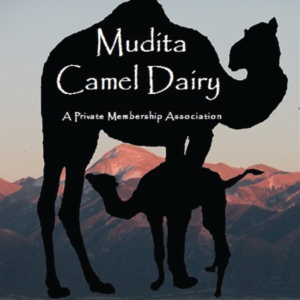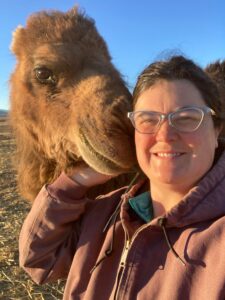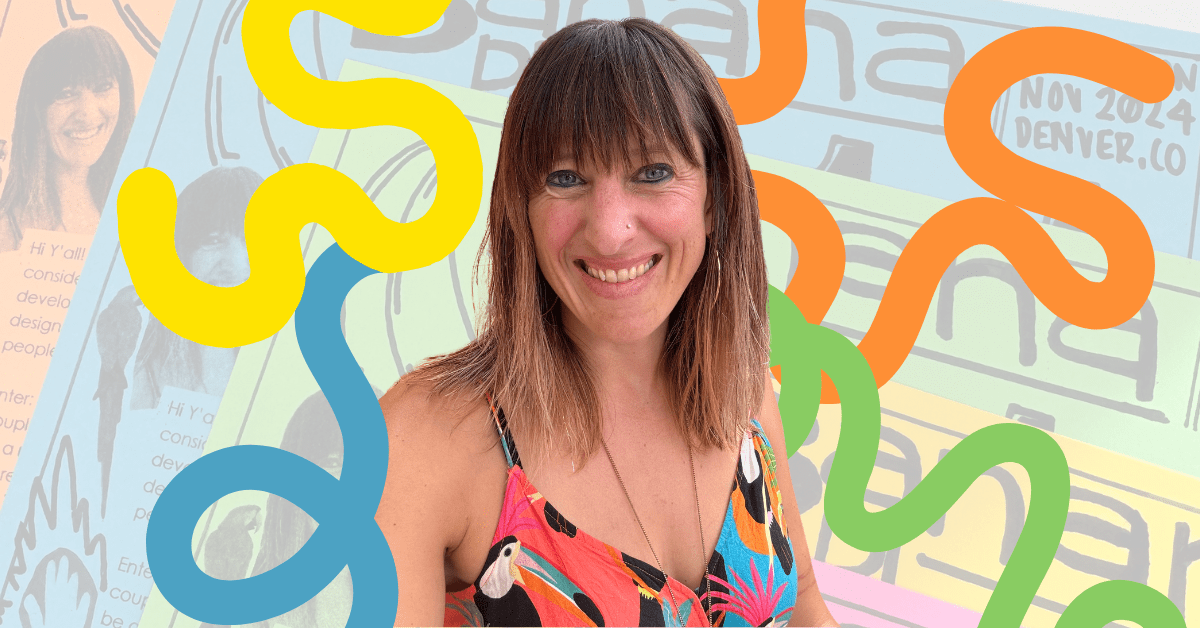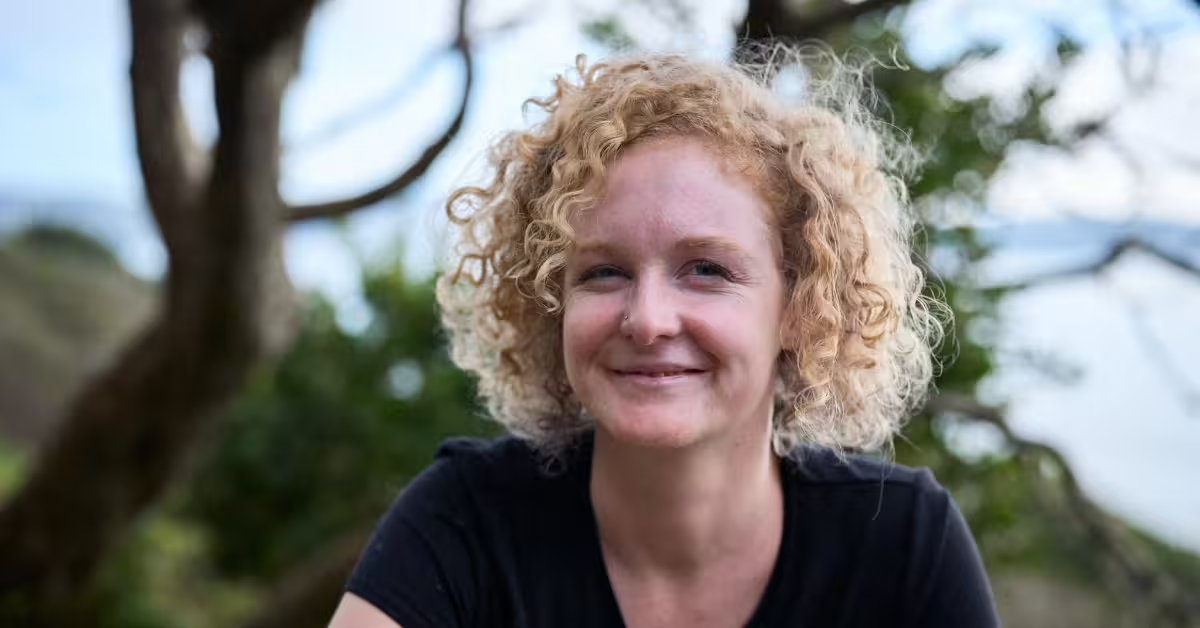OWNER OF MUDITA CAMEL DAIRY
Meghan Stalzer is known as the Camel Chick in her small community of Moffat, Colorado, a nickname developed after community members began to recognize her family for their camel farm and the unique Airbnb that they run on the property.
 Meghan’s dream of developing a self-sustaining homestead began in 2014 after returning from Michigan where she and her husband spent a year training on how to raise and care for camels. Having a camel farm is a pretty unique thing to take on in general but specifically in Colorado where we don’t tend to see many camels. So why camels? Meghan’s passion to help people is what sparked her choice to start producing camel milk after reading an article on the health benefits that the milk can have for human immune systems. Camel milk has nanobodies that boost our immune system, and some studies have shown that it can help with the effects of Autism, low milk production of mothers who are breastfeeding, nonverbal children, and some cancer patients. Camel milk is also naturally homogenized, which is something that excites nutritionists and fad seekers alike.
Meghan’s dream of developing a self-sustaining homestead began in 2014 after returning from Michigan where she and her husband spent a year training on how to raise and care for camels. Having a camel farm is a pretty unique thing to take on in general but specifically in Colorado where we don’t tend to see many camels. So why camels? Meghan’s passion to help people is what sparked her choice to start producing camel milk after reading an article on the health benefits that the milk can have for human immune systems. Camel milk has nanobodies that boost our immune system, and some studies have shown that it can help with the effects of Autism, low milk production of mothers who are breastfeeding, nonverbal children, and some cancer patients. Camel milk is also naturally homogenized, which is something that excites nutritionists and fad seekers alike.
 The process of producing camel milk isn’t easy. Unlike cows or goats, camels control their milk supply; they choose whether or not they want to give you their milk, and they can essentially stop the flow at any moment and just continue to store it. Therefore, camel breeders and farmers have to be intentional about developing a trusting relationship with their cameIs in order to get a good milk supply. This bonding period can take a lot of time before the camel feels comfortable allowing someone other than their babies to get their milk. This is one of the reasons camel milk comes at a much higher price point than cow’s milk; production can be high or low — or non-existent — at any given moment.
The process of producing camel milk isn’t easy. Unlike cows or goats, camels control their milk supply; they choose whether or not they want to give you their milk, and they can essentially stop the flow at any moment and just continue to store it. Therefore, camel breeders and farmers have to be intentional about developing a trusting relationship with their cameIs in order to get a good milk supply. This bonding period can take a lot of time before the camel feels comfortable allowing someone other than their babies to get their milk. This is one of the reasons camel milk comes at a much higher price point than cow’s milk; production can be high or low — or non-existent — at any given moment.
In the case of Meghan’s farm, she won’t have enough milk available to sell until next year because she and her husband are rebuilding their breed. A camel’s gestation period is 13 months, so the breeding process is a lot longer. Luckily, in addition to producing milk, Meghan also spins camel wool and sells it as yarn that is exceptionally soft because of camels’ dual coat of fur and hair. She also makes camel fudge (which requires a lot less milk) and camel milk soap that feels great on the skin and smells amazing. Meghan and her husband also run an Airbnb with yurts on the property to supplement their income and use it as a way to share their love and knowledge of camel life with others — a real treat and something very unique for the guests they host.
Meghan learned about RMMFI through the First Southwest Community Fund, an organization that has helped many small businesses in Southern Colorado thrive and create new opportunities. “I’m so happy that I learned about RMMFI through the First Southwest Community Fund because of the stabilization it’s helped me provide my family.”
To learn more, make a purchase, or visit the homestead, visit the Mudita Camels website and follow Meghan on Instagram and Facebook.



